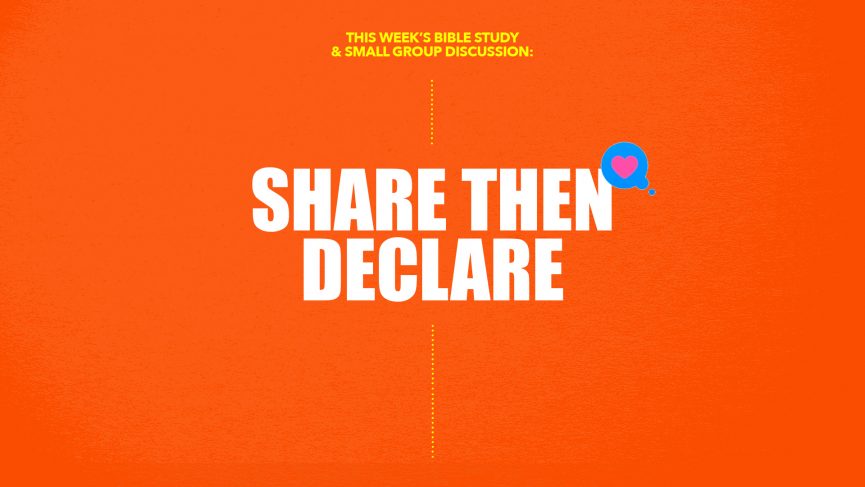SHARING THE GOSPEL: SOME GOOD NEWS
READ: John 4:1-26
“He had to go through Samaria on the way. Eventually he came to the Samaritan village of Sychar, near the field that Jacob gave to his son Joseph. Jacob’s well was there; and Jesus, tired from the long walk, sat wearily beside the well about noontime. 7 Soon a Samaritan woman came to draw water, and Jesus said to her, “Please give me a drink.” He was alone at the time because his disciples had gone into the village to buy some food. The woman was surprised, for Jews refuse to have anything to do with Samaritans. She said to Jesus, “You are a Jew, and I am a Samaritan woman. Why are you asking me for a drink?”
Jesus replied, “If you only knew the gift God has for you and who you are speaking to, you would ask me, and I would give you living water.” “But sir, you don’t have a rope or a bucket,” she said, “and this well is very deep. Where would you get this living water? And besides, do you think you’re greater than our ancestor Jacob, who gave us this well? How can you offer better water than he and his sons and his animals enjoyed?”
Jesus replied, “Anyone who drinks this water will soon become thirsty again. But those who drink the water I give will never be thirsty again. It becomes a fresh, bubbling spring within them, giving them eternal life.” “Please, sir,” the woman said, “give me this water! Then I’ll never be thirsty again, and I won’t have to come here to get water.” “Go and get your husband,” Jesus told her. “I don’t have a husband,” the woman replied. Jesus said, “You’re right! You don’t have a husband — for you have had five husbands, and you aren’t even married to the man you’re living with now. You certainly spoke the truth!” “Sir,” the woman said, “you must be a prophet. So tell me, why is it that you Jews insist that Jerusalem is the only place of worship, while we Samaritans claim it is here at Mount Gerizim, where our ancestors worshiped?” Jesus replied, “Believe me, dear woman, the time is coming when it will no longer matter whether you worship the Father on this mountain or in Jerusalem. You Samaritans know very little about the one you worship, while we Jews know all about him, for salvation comes through the Jews. 23 But the time is coming—indeed it’s here now—when true worshipers will worship the Father in spirit and in truth. The Father is looking for those who will worship him that way. For God is Spirit, so those who worship him must worship in spirit and in truth.” The woman said, “I know the Messiah is coming—the one who is called Christ. When he comes, he will explain everything to us.” Then Jesus told her, “I am the Messiah!”
John 4 summarizes a powerful story of a woman who carried the weight of the world on her shoulders. She was weighed down by sin. She was weighed down by society’s rejection. She was weighed down by a trail of broken relationships. This woman’s life radically changed when she encountered Jesus at a well. We call her the “woman at the well.” I know, it’s clever. Using the metaphor of water, Jesus offered her new life and love that would fulfill her for eternity (4:14). He didn’t judge her like society did. He didn’t threaten her like manipulative men did. He just extended a life-changing invitation to her— Jesus forgives and gives you a full life.
This passage gives us a powerful paradigm for sharing our faith and evangelism. I know that this isn’t a word we often throw around, so let’s define it. Evangelism, based on the Greek verb euangelizo, means to communicate the good news of Jesus to others. Evangelism is an invitation, an invitation to experience God, know Jesus, and connect with something greater than yourself.
So, what does good evangelism look like? Let’s look at the example of the greatest evangelist to ever walk the earth, Jesus. Here are three life lessons we can gain from Jesus’s example when talking to the woman at the well:
Meet people where they are.
Most people bypassed Samaria on their trips, but not Jesus. Verse 4 says Jesus “had to” take this route. This trip placed Jesus smack dab in the middle of Samaria, a place that hated people like Jesus. Radical racial tensions between ancient Hebrews and Samaritans meant that this conversation wasn’t just important; it was dangerous. That didn’t stop Jesus from crossing cultural barriers to help her. Evangelism is all about meeting people where they are, not where you think they should be. Don’t expect people to come to you. Go to them. Don’t expect people to change first. Show them that change is possible. Don’t count anyone out because God accepts everyone.
Conversation is more important than presentation.
Jesus didn’t invite her to church. He invited her into a conversation. The same should be true for you. Don’t lecture people; love them. Don’t preach at people; talk with them. Faith is a tough topic with layers of nuance. Thus, conversation is often the stepping stone to salvation. As Jesus spoke to her, He learned more about her. This gave Him a glimpse into her heart which allowed Him to speak to what she really needed. She shared about significant struggles and dire dissatisfaction. Ultimately, she shared that she felt emotionally empty. Jesus offered her true fulfillment. Understanding her desperation required conversation.
Point people to Jesus.
Jesus is the only source of true satisfaction, fulfillment, and hope. She casually explained, “I know a Messiah is coming that will explain everything” (4:25). Aren’t all people looking for that? They want something or someone to come into their life to make everything better. We reach for relationships, rituals, or resources to help us cope. Ultimately, all of those things will fade like smoke from an extinguished candle. You must always point people to Jesus because He is the source of salvation. Jesus changes everything.
TALK IT OUT
Go through these questions with your circle. Be honest. Be open. Talk through the tough stuff.
Q1: When did you hear the gospel for the first time? How was it presented to you and did it make an impact?
Q2: Have you ever shared the gospel with someone else? How did you do it and how did it turn out?
Q3: Why does God call every Christian to evangelism?
Q4: The story of Jesus visiting the woman at the well teaches us to evangelize by meeting people where they are, engaging in genuine conversation, and pointing people to Jesus. Which of these three lessons do you relate to the most and why?
Q5: Think of someone you care about who doesn’t yet know Jesus. What’s something you can start to do to take a step towards sharing the gospel with them?

